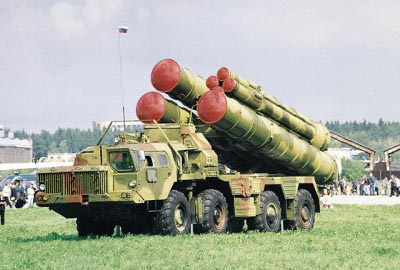Re: The Rise of the Russian Empire: Russo-Armenian Relations
The multi-billionaire internationalist who personally delivered the "color" revolutions in Ukraine and Georgia finally speaks up about the Russian Federation:
Soros: Trouble with Russia

PRAGUE -- Russia’s position on Kosovo is more dangerous than that concerning the U.S. missile defense shield, George Soros says.
“The fact that Russia is trying to take over the Kosovo issue is more dangerous for Europe than Kremlin’s criticism and resistance to the U.S. plans to place components of its anti missile shield in the Czech Republic and Poland,” the American billionaire told the Czech Radio in Prague.
“If Russia really does veto [a UN Kosovo resolution], this will be a serious problem for Europe, causing divide within the EU as some countries favor Kosovo’s independence while others do not. Precisely this will demonstrate the lengths Russia will go to in order to create trouble in the world,” Soros was quoted as saying.
“Kosovo needs calming down and consolidating. That is what people in Kosovo are demanding and unless they are granted independence, they will declare it unilaterally. That would create a really huge problem,” Soros continued. Democratic Party of Serbia (DSS) vice president and cabinet minister Aleksandar Popović criticized the comments sharply, saying that Soros saw fit to engage in Serbian internal matters, advocating dismemberment of the state and snatching of 15 percent of Serbia’s territory.
“Serbia never called on Soros to deal with her state borders or the issues of her territorial integrity. Perhaps Soros wishes to assume the role of the United Nations Security Council, carving up borders as he sees fit and as fits his capital,” Popović said.
Source: http://www.b92.net/eng/news/comments.php?nav_id=41012
The multi-billionaire internationalist who personally delivered the "color" revolutions in Ukraine and Georgia finally speaks up about the Russian Federation:
Soros: Trouble with Russia

PRAGUE -- Russia’s position on Kosovo is more dangerous than that concerning the U.S. missile defense shield, George Soros says.
“The fact that Russia is trying to take over the Kosovo issue is more dangerous for Europe than Kremlin’s criticism and resistance to the U.S. plans to place components of its anti missile shield in the Czech Republic and Poland,” the American billionaire told the Czech Radio in Prague.
“If Russia really does veto [a UN Kosovo resolution], this will be a serious problem for Europe, causing divide within the EU as some countries favor Kosovo’s independence while others do not. Precisely this will demonstrate the lengths Russia will go to in order to create trouble in the world,” Soros was quoted as saying.
“Kosovo needs calming down and consolidating. That is what people in Kosovo are demanding and unless they are granted independence, they will declare it unilaterally. That would create a really huge problem,” Soros continued. Democratic Party of Serbia (DSS) vice president and cabinet minister Aleksandar Popović criticized the comments sharply, saying that Soros saw fit to engage in Serbian internal matters, advocating dismemberment of the state and snatching of 15 percent of Serbia’s territory.
“Serbia never called on Soros to deal with her state borders or the issues of her territorial integrity. Perhaps Soros wishes to assume the role of the United Nations Security Council, carving up borders as he sees fit and as fits his capital,” Popović said.
Source: http://www.b92.net/eng/news/comments.php?nav_id=41012














Comment